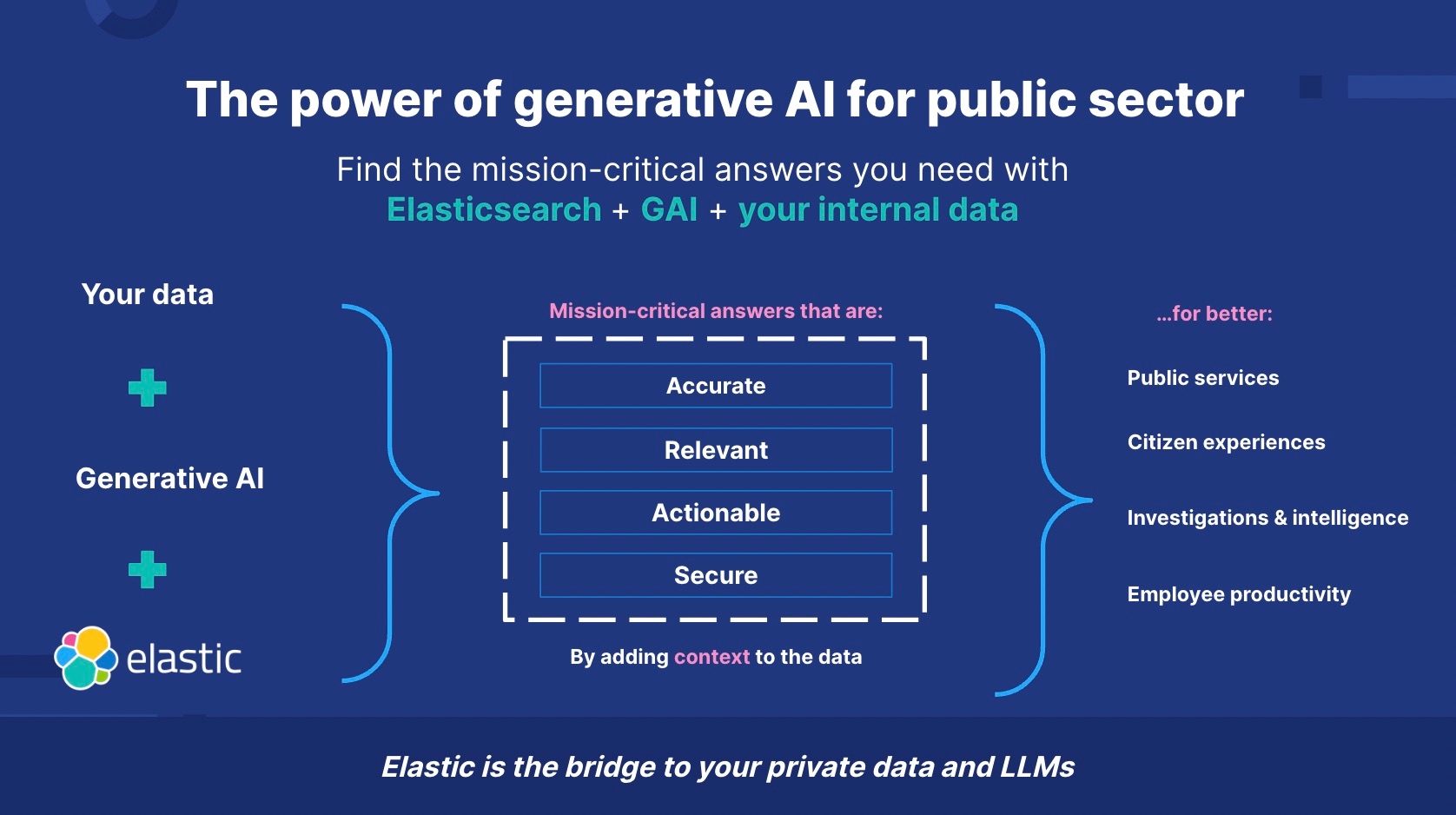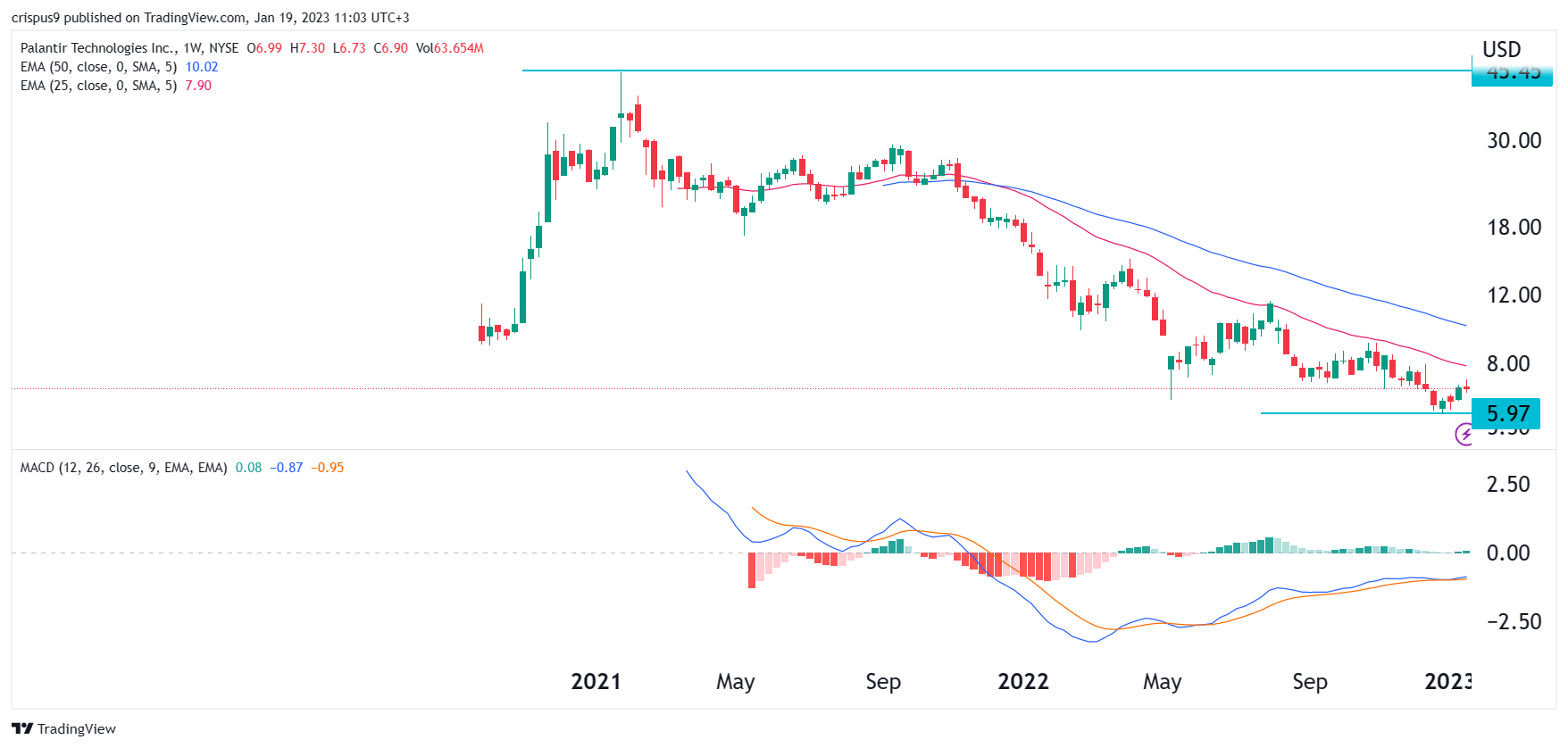Predicting The Future: Palantir's Impact On Public Sector AI With Its NATO Deal

Table of Contents
Enhanced Data Integration and Analysis for National Security
Palantir's platform excels at integrating disparate datasets – from sensor data and social media feeds to intelligence reports and financial transactions – to provide a unified intelligence picture. This capability is transformative for national security. By connecting seemingly unrelated data points, Palantir's AI algorithms uncover hidden patterns and relationships that would be impossible to detect using traditional methods.
- Improved situational awareness through real-time data fusion: The platform's real-time data processing allows for immediate updates to the intelligence picture, providing a crucial advantage in fast-moving situations.
- Enhanced threat detection and prediction capabilities: Predictive policing models, powered by Palantir's AI, can identify potential threats and predict future criminal activity, allowing for proactive intervention. Similarly, advanced Cybersecurity Threat Intelligence capabilities help anticipate and mitigate cyberattacks.
- Streamlined intelligence analysis workflows: The platform automates many tedious tasks, allowing analysts to focus on higher-level analysis and strategic decision-making. This leads to significant improvements in efficiency and effectiveness.
- Better resource allocation for national security operations: By providing a clear and comprehensive understanding of the threat landscape, Palantir's platform enables more efficient allocation of resources, maximizing their impact.
For NATO, this translates to improved operational effectiveness, better coordination between member states, and a stronger collective defense posture. The enhanced Intelligence Fusion capabilities offered by Palantir are particularly critical in today's complex geopolitical environment.
Revolutionizing Public Health with AI-Powered Data Analysis
Beyond national security, Palantir's AI has significant potential in revolutionizing public health. Its data analysis capabilities can play a crucial role in disease surveillance and outbreak response. The platform can integrate data from various sources, including hospital records, lab results, and public health surveys, to identify patterns and predict outbreaks before they become widespread.
- Faster identification of disease outbreaks: By analyzing real-time data, Palantir's AI can detect anomalies and potential outbreaks far more quickly than traditional methods, allowing for rapid response and containment.
- Improved resource allocation for public health initiatives: The platform can optimize resource allocation by identifying areas most at risk and predicting the likely demand for healthcare resources.
- Enhanced epidemiological modeling and prediction: Palantir's AI can be used to develop more accurate epidemiological models, allowing public health officials to better anticipate the spread of diseases and plan accordingly.
- Better targeting of public health interventions: By identifying vulnerable populations and high-risk areas, the platform can help target public health interventions more effectively, maximizing their impact.
The applications extend far beyond pandemic response. Palantir's technology promises significant improvements in Public Health Surveillance, facilitating Data-Driven Healthcare, and enabling Predictive Analytics in Healthcare across a wide range of conditions.
Optimizing Government Operations and Resource Management
Palantir's AI can significantly improve efficiency and transparency within government agencies. By streamlining bureaucratic processes and enhancing data-driven decision-making, it can lead to better governance and improved citizen services.
- Improved fraud detection and prevention: The platform's ability to identify anomalies and patterns in large datasets makes it highly effective in detecting and preventing fraud in government programs.
- Streamlined bureaucratic processes: Automation of many administrative tasks can significantly reduce processing times and improve efficiency across government agencies.
- Enhanced citizen services: Data-driven insights can help governments tailor services to meet the specific needs of their citizens, improving satisfaction and accessibility.
- Data-driven decision-making for policy development: By providing access to comprehensive data and insightful analysis, Palantir's platform can empower policymakers to make more informed and effective decisions.
The implications for Government Efficiency and Data-Driven Governance are profound, potentially leading to greater transparency and accountability in public administration. AI for Public Administration is no longer a futuristic concept; it's a present-day reality with the potential to reshape how governments operate.
Potential Challenges and Ethical Considerations
While Palantir's technology offers significant benefits, it's crucial to address potential challenges and ethical considerations.
- Data security and protection: Protecting sensitive government data from unauthorized access and breaches is paramount. Robust security measures are essential.
- Mitigation of algorithmic bias: AI algorithms can inherit biases present in the data they are trained on. Addressing and mitigating these biases is crucial to ensure fairness and equity.
- Ensuring transparency and accountability in AI systems: It's vital to ensure transparency in how AI systems make decisions and to establish mechanisms for accountability when errors occur.
- Addressing potential misuse of AI technology: Safeguards must be in place to prevent the misuse of AI for surveillance or other purposes that violate privacy or human rights.
Developing and implementing ethical guidelines and promoting responsible AI development are crucial to maximizing the benefits of Palantir's technology while mitigating potential risks.
Conclusion
Palantir's technology has the transformative potential to reshape public sector AI, significantly impacting national security, public health, and government operations. Its ability to integrate vast amounts of data, analyze complex patterns, and provide actionable insights offers unparalleled opportunities for improved efficiency, effectiveness, and transparency. However, realizing this potential requires a careful consideration of the ethical implications and a commitment to responsible AI development. Learn more about the implications of Palantir's partnership with NATO and the future of Palantir Public Sector AI. Explore how this technology can improve public services and enhance national security. Continue the conversation about the ethical considerations involved in using AI in the public sector.

Featured Posts
-
 Trade Chaos Cripples Chinese Exports The Bubble Blaster Example
May 10, 2025
Trade Chaos Cripples Chinese Exports The Bubble Blaster Example
May 10, 2025 -
 France Urges Eu To Escalate Response To Us Tariffs
May 10, 2025
France Urges Eu To Escalate Response To Us Tariffs
May 10, 2025 -
 Nigeria Others Face Uk Visa Restrictions Amidst Overstay Fears
May 10, 2025
Nigeria Others Face Uk Visa Restrictions Amidst Overstay Fears
May 10, 2025 -
 No Young Thug On Board Blue Origin Flight Passenger List Confirmed
May 10, 2025
No Young Thug On Board Blue Origin Flight Passenger List Confirmed
May 10, 2025 -
 Palantir Stock Prediction 2 Superior Investments For The Next 3 Years
May 10, 2025
Palantir Stock Prediction 2 Superior Investments For The Next 3 Years
May 10, 2025
